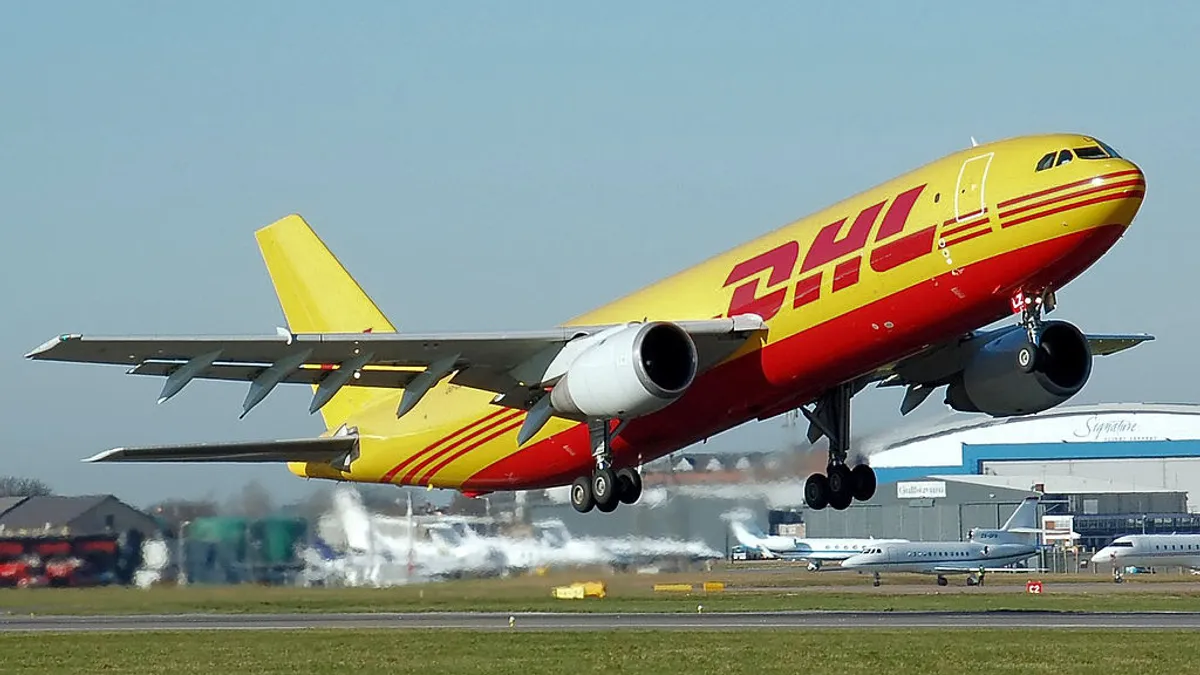Dive Brief:
- DHL Express expects peak season volume in its network to increase by more than 50% compared to last year's season, as e-commerce usage continues to grow during the pandemic, it announced in a Monday press release.
- The company has already seen a 35% increase in e-commerce volume in its network for 2020, largely due to the pandemic, and believes peak season will set record highs for global e-commerce trade.
- DHL Express is set to receive two new widebody aircrafts over the next month to carry out an increased number of daily flights to meet demand. The global delivery service has already hired an additional 10,000 employees, added four aircraft and an additional 3,000 flights per year, and expanded its operations capacities by investments of roughly 1 billion euro (some $1.2 billion), according to the release.
Dive Insight:
DHL Express has already experienced record high shipping numbers this year and is bracing for volumes to only go up during the holiday season, with e-commerce fueling the uptick. Company leaders believe the uncertainty of the pandemic will drive consumers to shop online instead of in store, requiring faster and more responsive delivery.
"Particularly in current days of uncertainty many giant stores will be going online with their sales promotion," Michiel Greeven, executive vice president of global sales at DHL Express, said in the press release."This will have its effect on peak season as well and shoppers will be mainly going online to get the best deals instead of going to physical stores."
Expectations for global e-commerce trade are high throughout the rest of the year, leading the carrier to bulk up operations to guarantee that it is prepared to handle shipper needs.
DHL Express' move to add six aircraft this year is an attempt to overcome the capacity constraints to air cargo that have resulted during the pandemic. There has been a lack of belly capacity due to the grounding of most passenger planes, though there have been plans to charter passenger-free flights for airfreight to service some major markets.
The combined impact of a decrease in air cargo capacity and the uptick in e-commerce has had a significant impact to the industry, Brie Carere, executive chief marketing and communications officer of FedEx, said last month on an earnings call. The effect: FedEx and UPS have altered operations to try and capitalize on volume surges as DHL Express has done the same.
"From an e-commerce perspective some might even say that Covid-19 brought 2030 to 2020, with online shopping and the necessary shipping as the new normal," Greeven said, adding that B2B and B2C transactions have fueled the switch to e-commerce. More than one-third of small businesses in an Alibaba survey said they are processing and placing B2B orders via e-commerce marketplaces, up from 21% last December.













